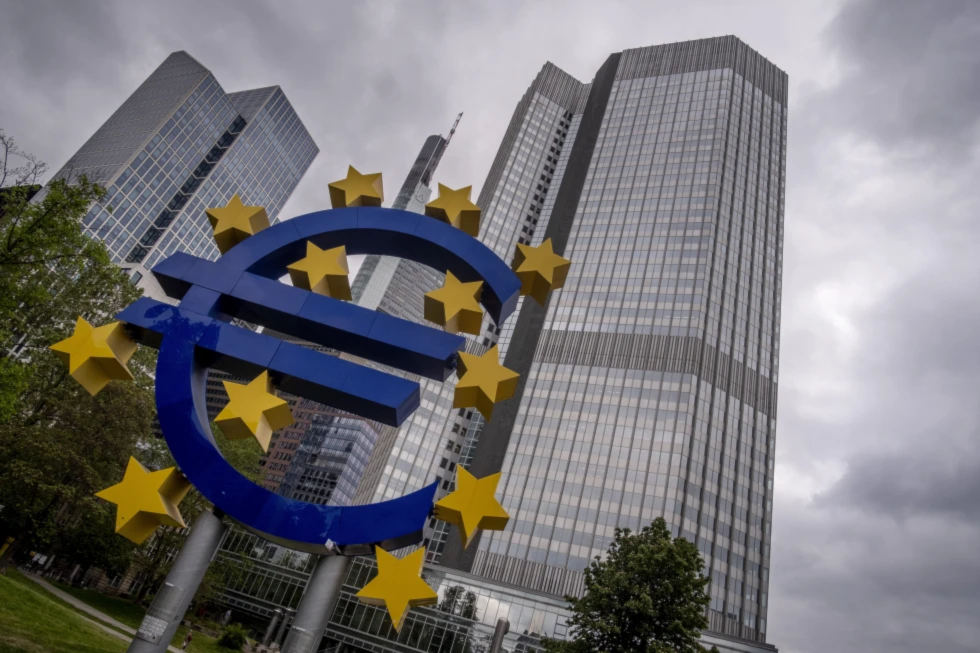ECB eyes stronger euro role globally: WSJ
The euro may gain strength if the EU pushes to make it a global alternative to the US dollar, as investors weigh trade risks and dollar weakness.
-

The Euro sculpture stands in front of the former headquarters of the European Central Bank (ECB) in Frankfurt, Germany, on May 23, 2023. (AP/Michael Probst)
The euro may gain strength in global markets if European leaders continue pushing to make it a real alternative to the US dollar, according to a note from ING strategist Francesco Pesole. He says that if the euro is to be taken seriously as a global reserve currency, the European Union would need to regularly issue shared debt, similar to what the US does with Treasury bonds.
European Central Bank President Christine Lagarde recently said that US President Trump’s unpredictable policies give the euro a rare chance to play a bigger role globally. However, political divisions between EU member states could slow progress, making it harder to move forward with bold financial reforms.
Even so, Pesole notes that "any serious moves in this direction," such as coordinated fiscal policies or more common EU bonds, could cause investors to increase bets on the euro, pushing its value higher. The euro edged down 0.1% to $1.1366 on Tuesday but had previously hit a four-week high of $1.1448.
Dollar slips as tariff confusion unsettles investors
The US dollar fell slightly amid growing uncertainty over trade policy. US President Trump initially said on Friday that he would impose a 50% tariff on EU goods starting June 1, only to delay it on Sunday to July 9.
Market strategists say this inconsistency makes it hard for investors to plan and increases the chances of a weaker dollar.
In this week's THINK aloud, ING FX strategists Chris Turner, Francesco Pesole, and Frantisek Taborsky take a look at how Donald Trump's policies will reshape the global currency markets in 2025.https://t.co/D9nUQxA9eo
— ING Economics (@ING_Economics) November 16, 2024
Michael Brown, a strategist at Pepperstone, said markets are already cautious about US assets and don’t need much reason to pull back further, predicting the dollar index (DXY), which measures the dollar against other major currencies, could slide to 98.000 if uncertainty continues.
The DXY was last down 0.1% at 99.027, after touching a one-month low of 98.694 on Monday.
Yen weakens as US stock futures climb
The Japanese yen, often seen as a safe-haven currency, lost some ground as US stock-index futures rose on Tuesday, boosting overall investor confidence. Gains in the S&P 500 and Nasdaq futures followed Monday’s US market holiday and were helped by headlines that US-EU trade negotiations may speed up.
In simple terms, stock-index futures reflect investor expectations about where major US markets, like the S&P 500 and Nasdaq, are headed. When those futures go up, it usually means investors expect stocks to perform well. That improved outlook makes investors feel more confident and willing to take risks. In turn, demand for safe-haven assets like the yen drops, causing its value to weaken slightly.
Ken Cheung of Mizuho Securities said the yen’s decline was tied to this shift in mood, with investors more willing to take risks. The USD/JPY pair rose 0.2% to 143.12, and AUD/JPY edged 0.1% higher to 92.77, according to FactSet data.

 3 Min Read
3 Min Read










